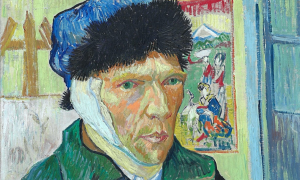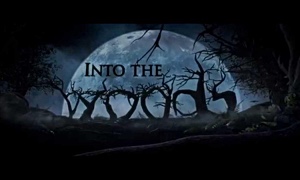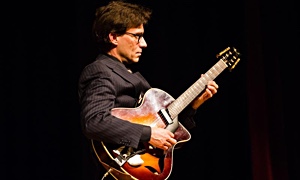Home » Jazz Articles » Shrinktunes » Clinging to a Myth
Clinging to a Myth
But it's reassuring for many to believe [in the 'mad creative'myth], since those who envy great talent can be grateful they don't have the 'necessary' craziness that comes with it.
My favorite rejection, so far, is from W. W. Norton: "If Dr. Schlesinger finds there is no connection, then the conclusion is boring. If she finds there is, it only confirms what everyone has claimed for years." Sure, the myth is exciting. Who cares if it devalues a whole group of people who bring joy and comfort to the world?
I've long been disgusted by the casual portrayal of all jazz musicians as losers. Dangerous Joy: The Mad Musician and Other Creative Myths has been cooking for over 20 years, ever since I added the psychologist hat to the musician one. Despite the inherent stress of the creative path, including the lunatic music business itself, and even factoring in the tragic lives of a famous few, I believe that musicians are no more prone to pathology than any other occupational group (and there are no large-scale population statistics that demonstrate otherwise). But it's reassuring for many to believe they are, since those who envy great talent can be grateful they don't have the "necessary" craziness that comes with it. The myth is fed by other factors as well, including the willingness of some musicians to adopt the hallowed mantle of "the tortured genius" to excuse their bad behavior (the late and very lamented Steve Allen pointed this one out to me).
It also helps that it's ancient. The mad creative myth began 2000 years ago with a misread of Plato's "divine inspiration" — which was originally seen as benign — and went downhill from there. In the Middle Ages, great creativity was a sign of demonic possession. Today, it's a sign of mental illness. (This is the short form; its history is far more detailed in the book).
In the past 20 years, a number of authors have claimed to "prove" once and for all, that there's an inherent connection between creativity and madness. In the noisy celebration of getting the myth "scientifically" confirmed at last, few people have noticed the fatal flaws in the research and the fact that, given the deliberate elasticity of psychiatric diagnosis these days, every human being on the planet has a mood disorder of some kind. And, it appears, even fewer actually care.
Most of the previous ink has been spilled on writers since they're most likely to provide quotable descriptions of their inner turmoil. The only musicians who've been included are dead: there's a recurring list of classical composers whose lives are carefully excerpted to "prove" that they were mad. Dangerous Joy is the first book to challenge the myth directly, the first to focus solely on musicians, and the first to enable living players, singers, and composers to speak for themselves about how the negative stereotypes impact their lives.
Although written for the general reader, DJ survived two rounds of scholarly reviews at a prestigious university press (for some reason, my chocolate mousse was entered in the apple pie bakeoff). Since the scholars couldn't find anything substantive to criticize (a sure sign that I'm onto something) they focused on my non-academic style and the fact that I provided no tables or illustrations.
I'm still waiting to hear from a number of Big Desks where my first three chapters and 14-page bibliography are probably being used as latte coasters (well, they are quite thick and absorbent). No, hope is not entirely gone. The passion of my musician friends helps to bolster mine when it sags. And there's always self-publishing and selling DJ out of the trunk of my car (or the cyber-equivalent).
But in the meantime, it's ironic how my quest has become part of the story: all those gatekeepers clinging to the myth like it's a sacred teddy bear and absolutely convinced that everyone else will, too. You see, nobody wants to hear that musicians are sane.
UPDATE: Here's to self-publishing, the indie of the written word!
< Previous
SFRAGMENTS:* Notes on Barbara Sfraga'...
Next >
Jobim, Master Therapist
Comments
Tags
For the Love of Jazz
 All About Jazz has been a pillar of jazz since 1995, championing it as an art form and, more importantly, supporting the musicians who create it. Our enduring commitment has made "AAJ" one of the most culturally important websites of its kind, read by hundreds of thousands of fans, musicians and industry figures every month.
All About Jazz has been a pillar of jazz since 1995, championing it as an art form and, more importantly, supporting the musicians who create it. Our enduring commitment has made "AAJ" one of the most culturally important websites of its kind, read by hundreds of thousands of fans, musicians and industry figures every month.






















